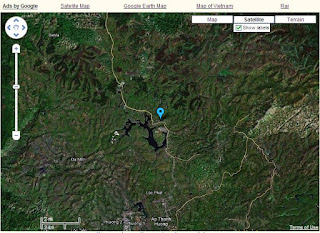Quốc tế đồng loạt mừng cho Ai Cập
Trên thực tế, chuyển biến đến từ tinh thần đấu tranh của người dân Ai Cập, các lãnh đạo quốc tế chỉ thêm ý kiến vào sau mà thôi
Các lãnh đạo quốc tế đồng loạt lên tiếng ca ngợi quyết định từ bỏ quyền lực của Tổng thống Ai Cập, ông Hosni Mubarak sau 30 năm cầm quyền.
Tổng thư ký Liên Hiệp Quốc, ông Ban Ki-Moon nói rằng Ai Cập nay cần tổ chức cuộc bầu cử tự do và công bằng.Hình ảnh nhân dân Ai Cập hoan hô tin ông Mubarak, Tổng thống cao niên của Ai Cập, phải ra đi vì sức ép quần chúng ngay lập tức khiến các lãnh đạo quốc lên tiếng chiều tối 11/2, tính theo giờ châu Âu.
Nhiều người dân đã khóc vì sung sướng.
Chuyển biến lịch sử
Thủ tướng Đức, bà Angela Merkel nói với báo chí rằng đây là "một chuyển biến lịch sử".
Bà bày tỏ sự vui mừng "cùng người dân Ai Cập" đang hạnh phúc với tin vui trên đường phố.
Thủ tướng Anh, ông David Cameron thì tỏ ra thận trọng hơn với phát biểu rằng "đây chỉ mới là bước đi đầu tiên".
̣Đây là một chuyển biến lịch sử
Bà Angela Merkel
Ông Obama dự kiến sẽ phát biểu về sự kiện mới nhất này cuối ngày thứ Sáu theo giờ Mỹ.
Phó Tổng thống Joe Biden thì đã lên tiếng gọi đây là "giờ khắc bước ngoặt" trong lịch sử Ai Cập và Trung Đông.
Theo tuyên bố của Phó tổng thống Omar Suleiman, 74 tuổi, thuộc phe an ninh, tình báo Ai Cập, thì nay Hội đồng các tướng lĩnh nước này đảm trách việc điều hành quốc gia.
Thủ tướng Anh đánh giá tình hình này và nói, "Ai lãnh đạo Ai Cập hiện nay cũng đều có trách nhiệm phản ánh ý chí của người dân Ai Cập, và đảm bảo ổn định."
Ông Ban Ki-moon mong cuộc bầu cử tới tại Ai Cập sẽ tự do và công bằng
Trước đó, EU bị phê là phản ứng chậm hơn nhiều so với Hoa Kỳ về chuyện đánh giá và lên tiếng về tình hình Ai Cập.
Nay, EU coi việc ông Mubarak "biết lắng nghe tiếng nói của người dân” là một dấu hiệu tốt nhưng vẫn lo ngại diễn biến tiếp theo đi về hướng bất ổn.
Trên thực tế, chuyển biến đến từ tinh thần đấu tranh của người dân Ai Cập, các lãnh đạo quốc tế chỉ thêm ý kiến vào sau mà thôi.
Nước láng giềng Israel mong có một sự chuyển giao quyền lực êm ả trong khi các nước thuộc khối Ả Rập theo chế độ độc đoán thì theo dõi sát các diễn biến tiếp theo ở Ai Cập, nước Ả Rập đông dân nhất.
Sau đợt biểu tình tại Tunesia khiến tổng thống Ben Ali phải ra đi, cuộc đấu tranh thắng lợi ở Ai Cập cho thấy sức mạnh của người dân làm bất ngờ các nhà quan sát quá thận trọng ở Âu Mỹ vốn cho rằng dân chủ "không tương thích" với tình hình tại khu vực Bắc Phi.
Sắp tới, các nhà bình luận dự đoán có nhiều khả năng tác động của chuyển biến tại Ai Cập sẽ lan ra các khu vực khác.






